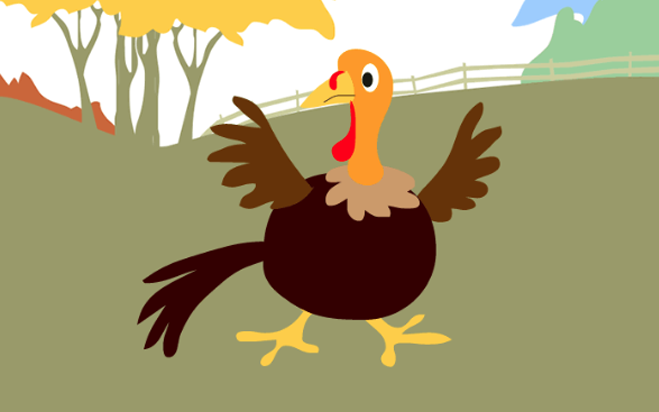
But it is a fairy tale that disguises the real meaning of Thanksgiving. The reality is nothing like the official story.
The official story says that the Pilgrims learned how to farm from the Indians, that 1621 was a bountiful harvest, where the hard-working Pilgrims and Indians sat down to a feast to give thanks. They then lived happily ever after.
But according to the governor of the colony William Bardford, 1621 was a famine year, and that many of the Pilgrims were lazy thieves.
In his History of Plymouth Plantation, Bradford wrote that the colonists went hungry for years because many refused to work in the fields. Instead, “Much was stolen both by night and day…”
Yes, there were harvest feasts in 1621 and 1622, but they were one day events. The general condition of those years was not abundance, but famine and death.
It wasn’t until 1623 that Bradford wrote, “instead of famine now God gave them plenty, and the face of things was changed, to the rejoicing of the hearts of many, for which they blessed God.”
Thereafter, he wrote, “any general want or famine hath not been amongst them since to this day.”
In fact, the colonists produced so much food in 1624, that they were able to begin exporting corn.
What changed?
What was different between the difficult early years and from 1623 afterwards?
Of the early harvests Bradford wrote, “all profits & benefits that are got by trade, traffic, trucking, working, fishing, or any other means” were to be placed in the common stock of the colony, and that, “all such persons as are of this colony, are to have their meat, drink, apparel, and all provisions out of the common stock.”
From each according to their ability, to each according to their need.
The early colonists were socialists.
That is why they were starving.
Bradford wrote that “young men that were most able and fit for labor and service” complained about being forced to “spend their time and strength to work for other men’s wives and children.”
Also, “the strong, or man of parts, had no more in division of victuals and clothes, than he that was weak.” So the young and strong refused to work and the total amount of food produced was never adequate.
To solve the problem, Bradford gave each household a parcel of land and told them they could keep everything they produced, or trade it away as they pleased.
In other words, he replaced socialism with a free market.
That was the end of the famines.
Many other early colonists also set up socialist states, all with the same lousy results.
At Jamestown, less than half survived their first year in America. Most of the work was being done by a fifth of the men, the others choosing to be parasites.
In the winter of 1609–10, called “The Starving Time,” only 10% of Jamestown’s population survived.
But when Jamestown changed to a free market, the results were just as dramatic as those at Plymouth. In 1614 the Colony Secretary wrote that there was “plenty of food, which every man by his own industry may easily and doth procure.”
He said that when the socialist system had prevailed, “we reaped not so much corn from the labors of thirty men as three men have done for themselves now.”
Before these free markets were established, the colonists had nothing for which to be thankful. They were in the same situation as communist Russia, and for the same reasons.
But after free markets were established, the abundance was so dramatic that annual celebrations became common, and in 1863 Thanksgiving became a national holiday.
Thus, the real meaning of Thanksgiving, deleted from the official story, is: Socialism does not work, has never worked, and will never work.
The one and only source of abundance is free markets.
Free markets are not ‘dog eat dog,’ but rather, ‘turkey feed turkey.’

Is there a source for this “revision?”